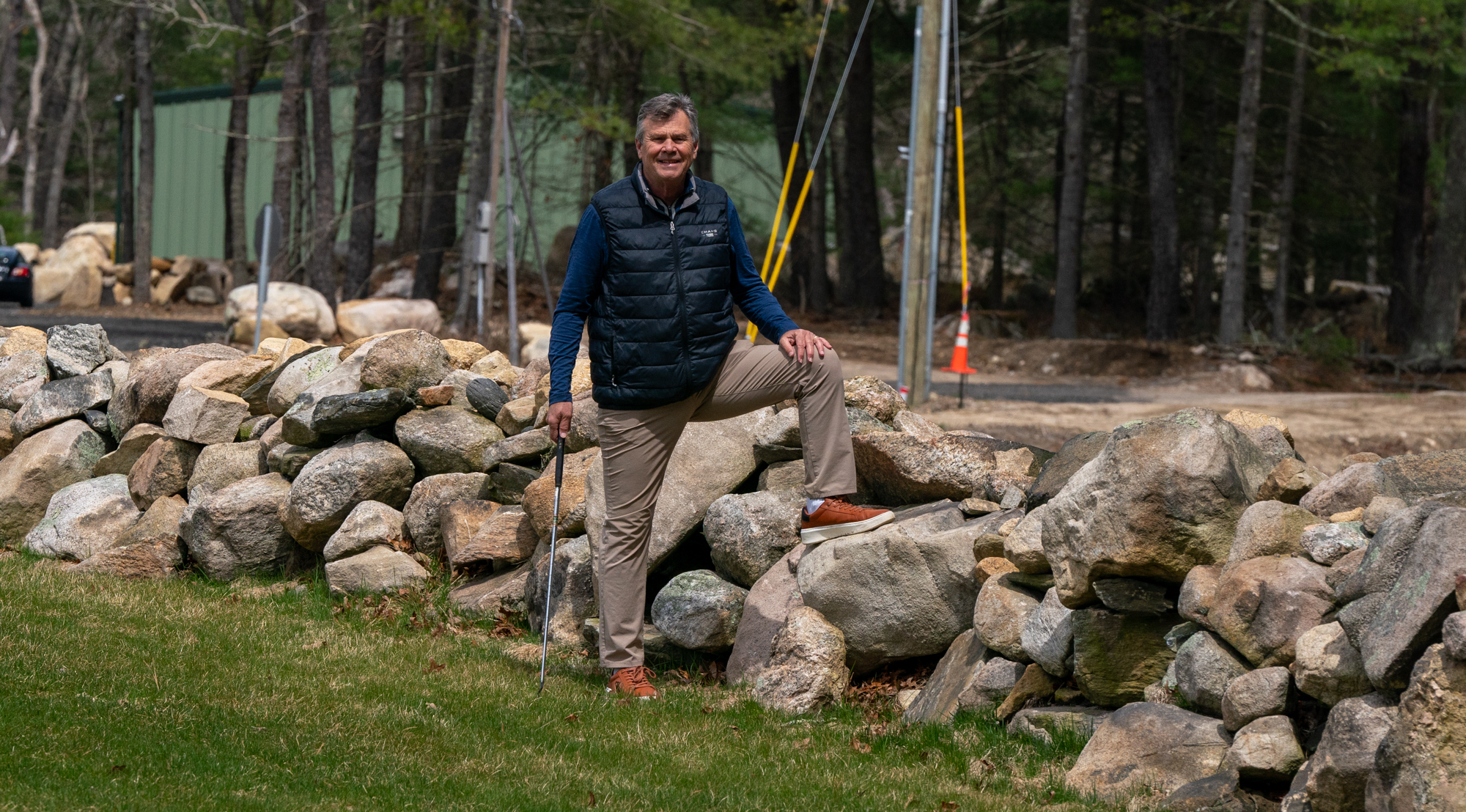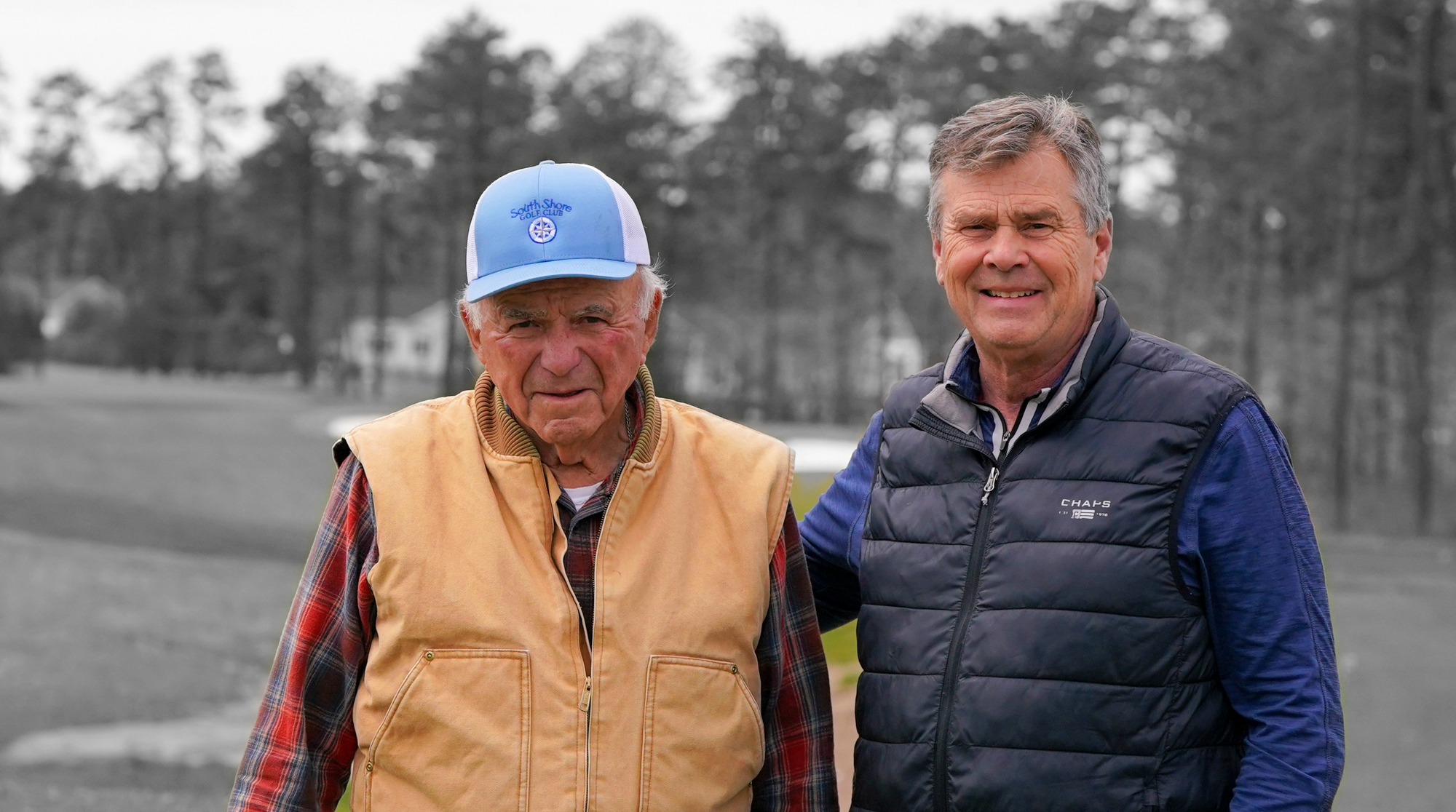By David Rogers. NARRAGANSETT, R.I. — Spring had not quite arrived when we visited High Country-based golf course architect Ron Cutlip’s latest creation, South Shore Golf Course, carved out of the rocky hills, vales, woods and marshes of a picturesque, historic farm in New England. Even so early in the season, the “greening” had begun and a golfer’s zeal was palpable.
For best photography viewing on a desktop monitor or laptop, please click on any image for Slide Show mode.
Golf course architecture is a multi-science, multi-discipline profession. Understanding the topographical features impacting hydrology, drainage, agronomy, turfgrasses, physics, geometry, civil engineering, soil sciences, botany, psychology and a tract of land’s natural systems are all part of the endeavor. In Cutlip’s hands, so is understanding the history of the venue and its surrounding region.

Decisions about where to carve out a fairway, place a tee box or craft a bunker are seldom arbitrary. For Cutlip, who has worked on almost two dozen courses across New York, Rhode Island, New Jersey, North Carolina, South Carolina, Ohio and Pennsylvania, course design is about appealing to — and challenging — the human spirit.
A good design provides an escape from the golfer’s normal day.
“When the player finishes a round, I want them to feel like they have conquered something. Let’s face it, this is a recreational market, so the courses need to look tough but maybe play easy from the proper tees,” said Cutlip as we walked over a rise in the No. 8 fairway and down to a sculpted green nestled against the woods.

“And yet, the course still needs to provide a test to the player who desires a challenge,” he added. “A good design creates an escape from a person’s normal day. The golfer needs to be presented with both the game and the dramatic beauty of nature during the round. Long-term, the golfer should feel good about their experience and return again and again whether they’re a professional or a weekend warrior.”
A unique course feature is a rock wall dating back to early Colonial times.
The South Shore course is a 9-hole, central feature of a new, 55-plus housing development, South Shore Village, in South Kingstown. The development is just minutes from the sun, sand and sea of Rhode Island’s beaches. The custom-built homes are all one-level, which frequently appeals to residents whose hair is beginning to gray.
The subdivision is built on the historic, Jerry Brown Farm. No, it is not related to the former governor of California, but traces back to a tract of land owned by Jeremiah Brown in the 1700s. Dotting the landscape throughout the region are rock walls dating back as far as the 1600s where settlers cleared land of the boulders and repurposed them to keep livestock from running away.

Cutlip uses one of these ancient walls as the backdrop to the green at the No. 5 hole.
“When you think about the history of this land and the rugged lives experienced by the inhabitants who worked this area, I think it is important to memorialize that history by preserving this wall,” said Cutlip, one foot elevated to a spot on the wall, the other planted in the nearby grass.
Golf course designs are usually a mixture, a combination, of the natural topographical features of the land as well as artificial constructs.

“I’d say most of my courses are 70 percent to 80 percent natural,” said Cutlip. “Even where there are artificial features, I like to take a natural characteristic and accentuate it. That big boulder? Use it as a natural hazard, a challenge for the golfer to get around. That bump of a hill? Build it up to frame the green, visually. I don’t think I have any holes that are less than 50 percent usage of the natural features. Sure, you have to cut down some trees to create fairways, but it is not just to clear land. You do it with creative purposes in mind.”
A good testimony as to the quality of golf played at South Shore is that it has become one of the favorite tracts for the University of Rhode Island men’s golf team to play and practice. On the day we toured the course, the URI team was already there, getting in some practice swings, and were eager to discuss various features with the course designer.
Each collegian had a favorite hole, all for different reasons. Made up of four freshmen, a sophomore, a senior and a graduate student in terms of their eligibility, they arrived at Rhode Island from a variety of locales, including Beijing, China; Alberta, Canada; and Buenos Aires, Argentina, as well as Massachusetts, Florida, New York, Vermont and one local young man, from Narragansett.







